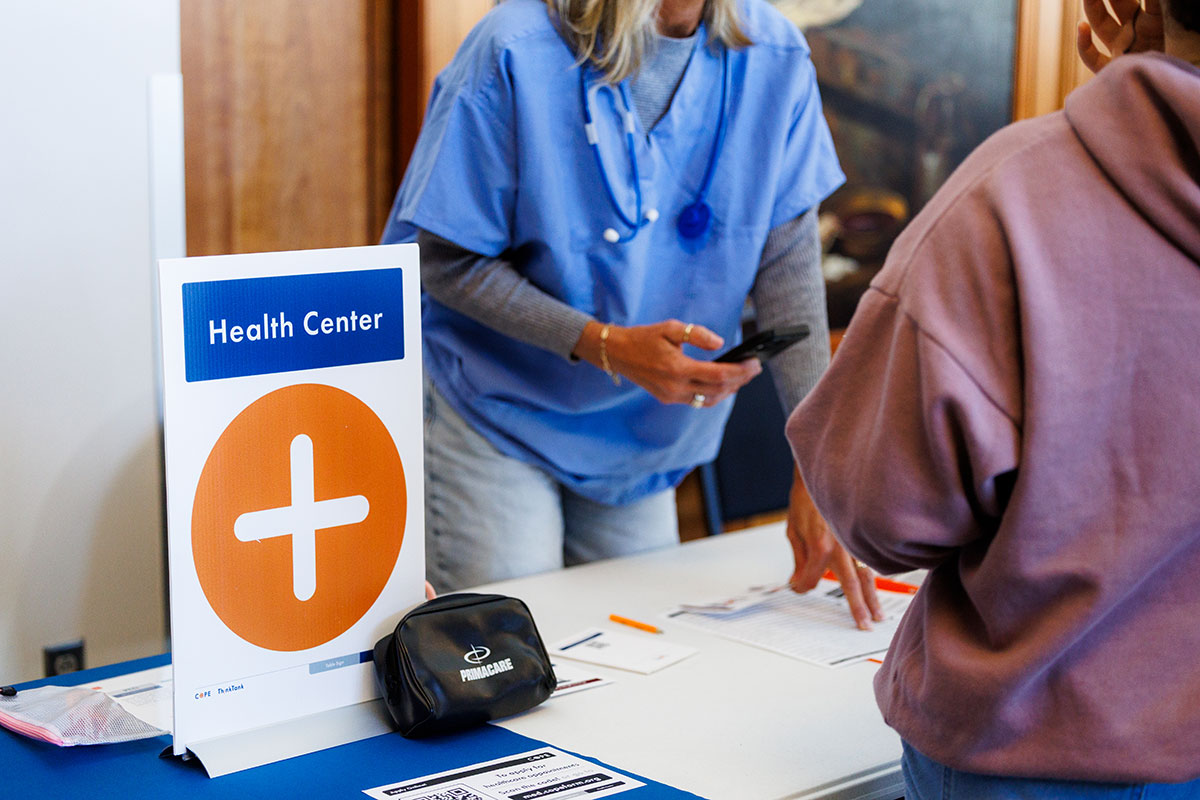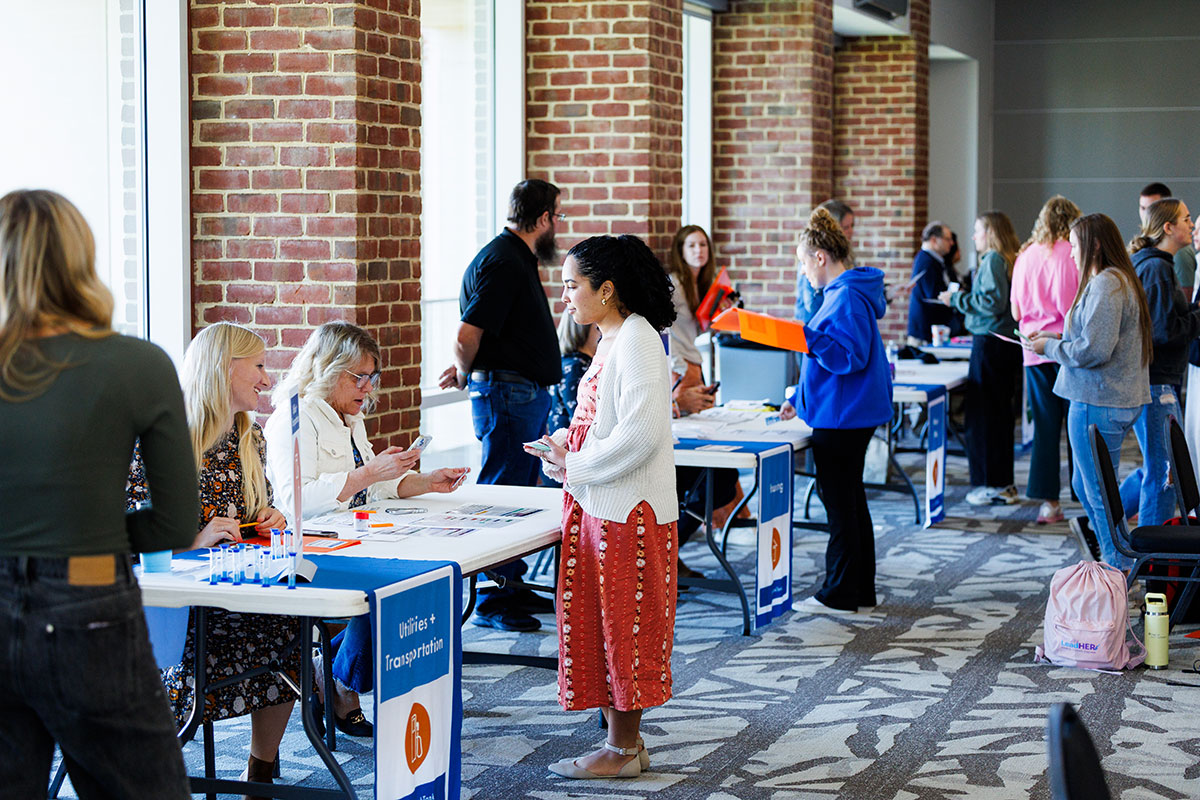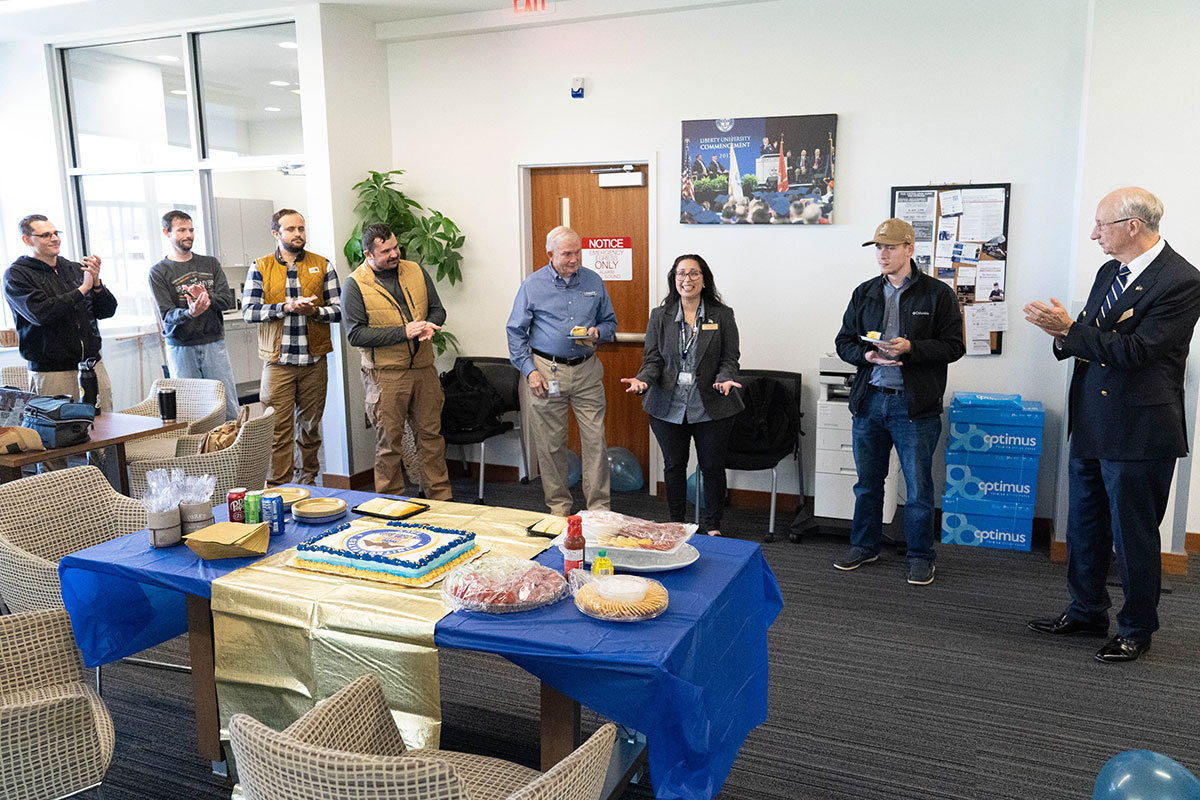Family and child development students learn the cost of poverty during true-to-life exercise
October 23, 2025 : By Abigail Degnan - Office of Communications & Public Engagement
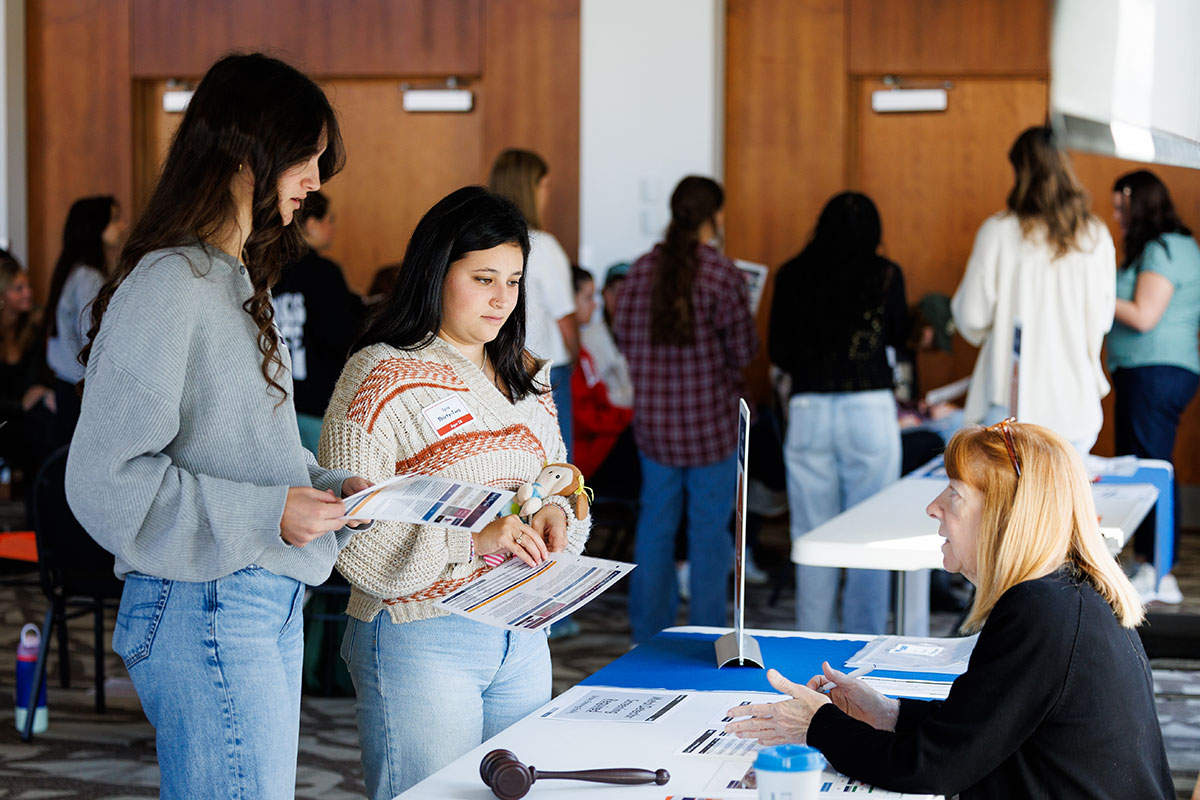
With more than 40% of U.S. households struggling to afford essential needs, poverty is a crippling experience that burdens many. To increase understanding and awareness of this issue, approximately 100 students in Liberty University’s family & child development program stepped into the shoes of those living in poverty during a special simulation on Tuesday based on the experiences of real-life families.
The event used the COPE (Cost of Poverty Experience) simulation training developed by ThinkTank Inc., which provides training and support on poverty for organizations, and was facilitated by FIVE18 Family Services, a local organization offering family services and community resources.
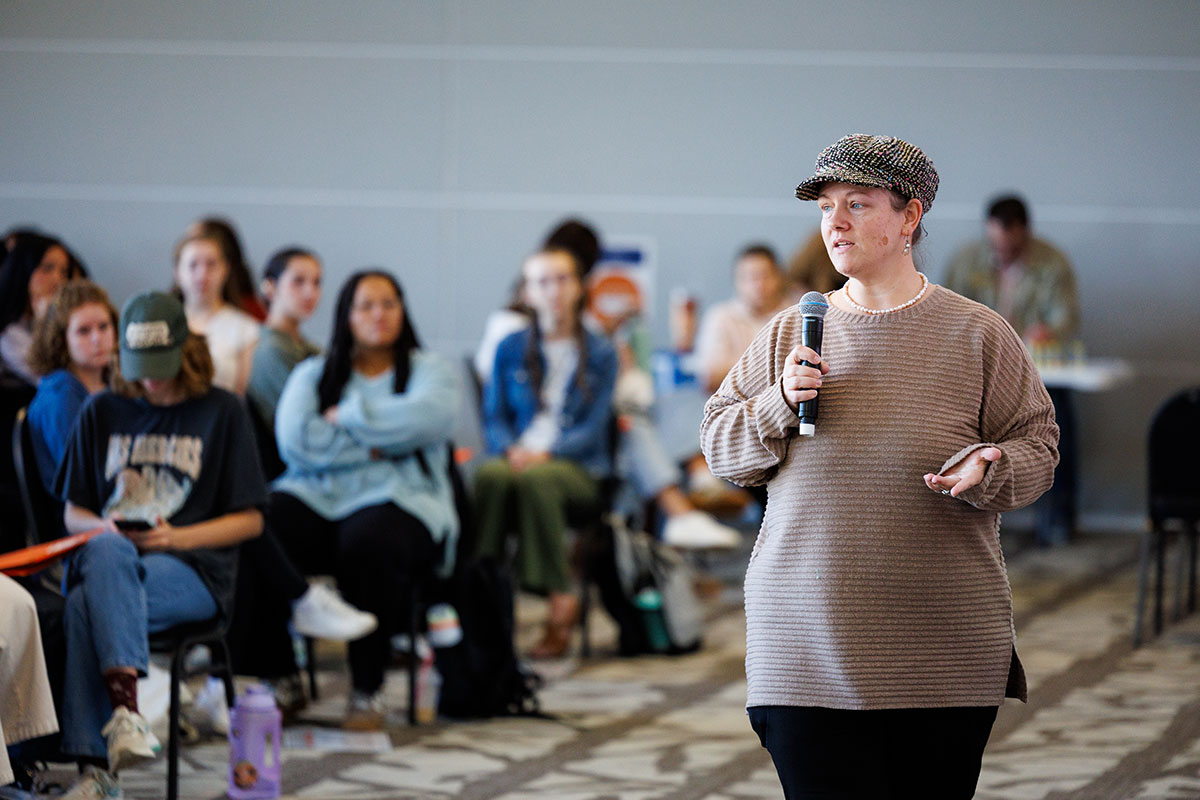
“What makes this experience so unique is that the family profiles were not created from scratch,” said Nicholette Antoniuk, CPO of FIVE18. “They were created because there were brave individuals and families who were living in poverty who shared the exact details of their stories.”
Each student was part of a larger family that navigated the two-and-a-half-hour simulation together through 13 different “community resource” stations over the course of four weeks, with each week represented by 15 minutes of real time. The stations included a bank, government services, grocery store, jail, school, transportation services, housing, and more.
As they attempted to complete tasks, the students ran into many obstacles that impoverished people experience, from having a child taken away by Child Protective Services, not having enough money to pay bills, getting evicted, experiencing discrimination or language barriers, and battling through addiction and recovery.
Participants must use the community resources available to overcome these obstacles, which shed light on the aid available to impoverished people while also highlighting the cracks in programs that may cause further obstacles.
Antoniuk said the simulation often shows how even with an abundance of community resources, poverty is a difficult issue to combat and overcome. In Lynchburg, she said, 18-19% of individuals live in poverty, including one in four children.
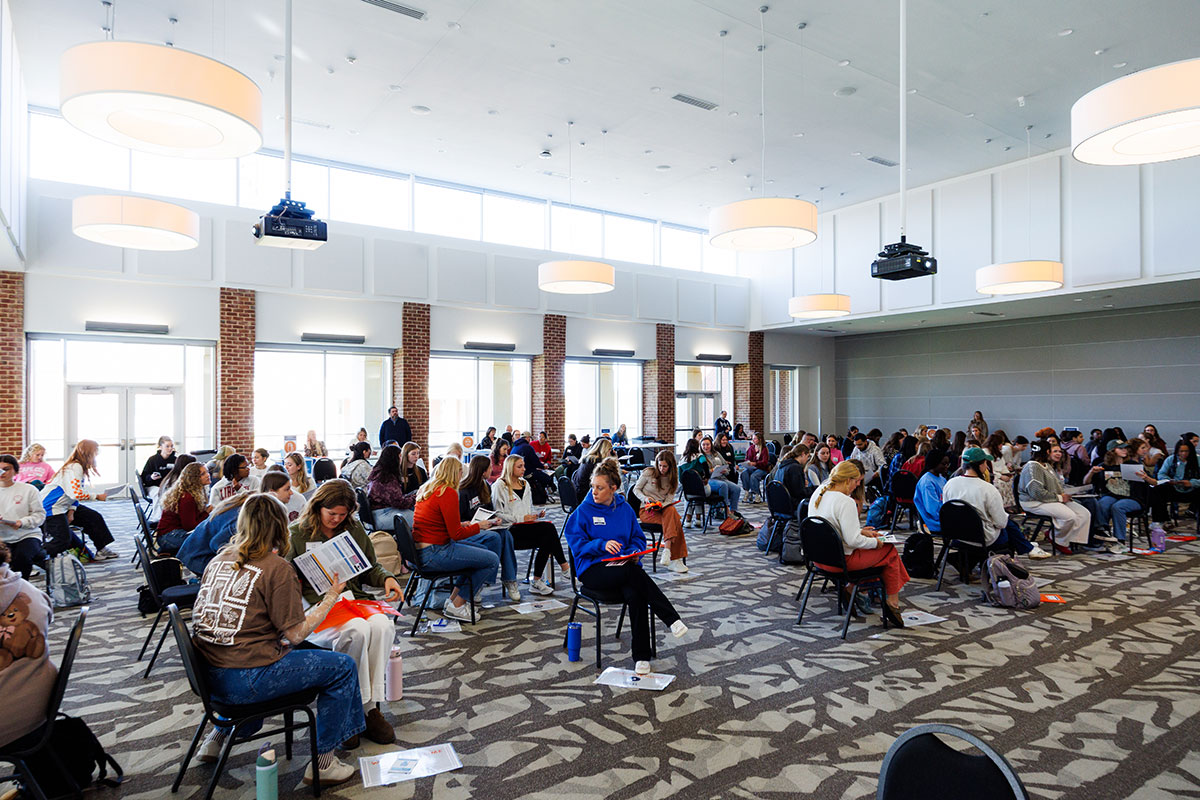
Da’Hani Miller, a senior studying family and child development, said she took on the identity of 61-year-old Ella, a grandmother who knows very little English in a family of six. As Ella, Miller was responsible for cooking meals and quickly found out that other adult family members were busy balancing and handling their own responsibilities, so grocery shopping — and sometimes affording groceries — fell through the cracks.
“(COPE) opened my eyes to the cost of poverty because it’s really a domino effect,” Miller said. “The reason we didn’t get food is because one person is working, one person is trying to pay the bills and utilities, and there’s long lines (at the grocery store), and then it closes.”
Senior family and child development student Collin Prince took on the identity of a 19-year-old male who sought solace in drugs and alcohol after his father kicked him out of his house. He said there were many barriers in his situation, even in getting a job, as he didn’t have a car for transportation.
“I came into (COPE) with the idea of it’s not that hard to get out of poverty, and this makes you realize it’s not a choice. It’s very difficult,” he said.
Senior Brynn Tedford, a developmental psychology student minoring in family and childhood development, said she experienced immense financial issues as she learned more about her identity: 32-year-old Marcus, a husband and father of a 5-year-old child.
“We felt like we kept struggling on how to pay bills and how to get groceries,” she said. “I was very excited to do (COPE) just to put my feet in the shoes of other people. But after going through it, it kind of pulled on my heartstrings a little bit because I want to be able to help people more.”
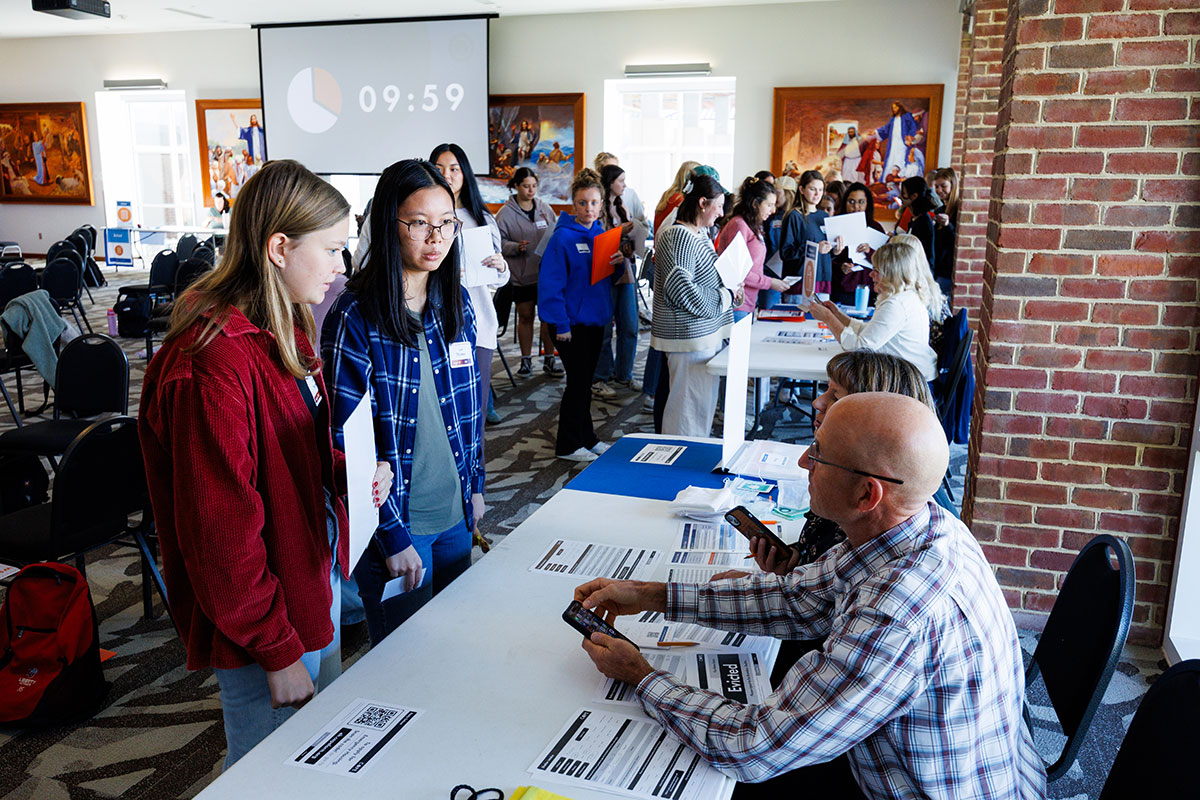
Tedford hopes to become a psychologist and specialize in family counseling, and she said the event broadened her understanding of the families she will encounter and ways she can help them.
Dr. Janet Brown, department chair for Family & Consumer Sciences, said the event will help students stand out as they seek job opportunities.
“Part of (family and childhood development) is learning how to help families that are in need, and a great need is from those that don’t have the finances, or have not learned how to manage the finances, or even those that have just found themselves in a poverty situation,” she said. “This is something that we want students to put on their résumés because it’s very unique. It can set them apart, just to be able to say they have had this experience and understand how to work with people.’”
Antoniuk said COPE is always a valuable experience for college students.
“Getting the opportunity to impact a college student population is one of my favorites, because it sends them into that next stage of launching out with a different perspective. Many students might come thinking it’s a game, it’s a simulation, I’m going to beat it. And then after the second week, and then the third week, they realize that this isn’t a game.”
Three FACS classes participated in the event: FACS 365: Admin. of Family and Child Life Programs, FACS 370: Parenting, and FACS 470: Internal Dynamics of the Family. The exercise was funded by an ILLUMINATE Grant through the Center for Teaching Excellence.
Liberty offers a residential B.S. in Family and Child Development through the Department of Family & Consumer Sciences. In this program, students learn the fundamentals of therapy and play theory in early childhood, development of contemporary families, parenting, and much more.
